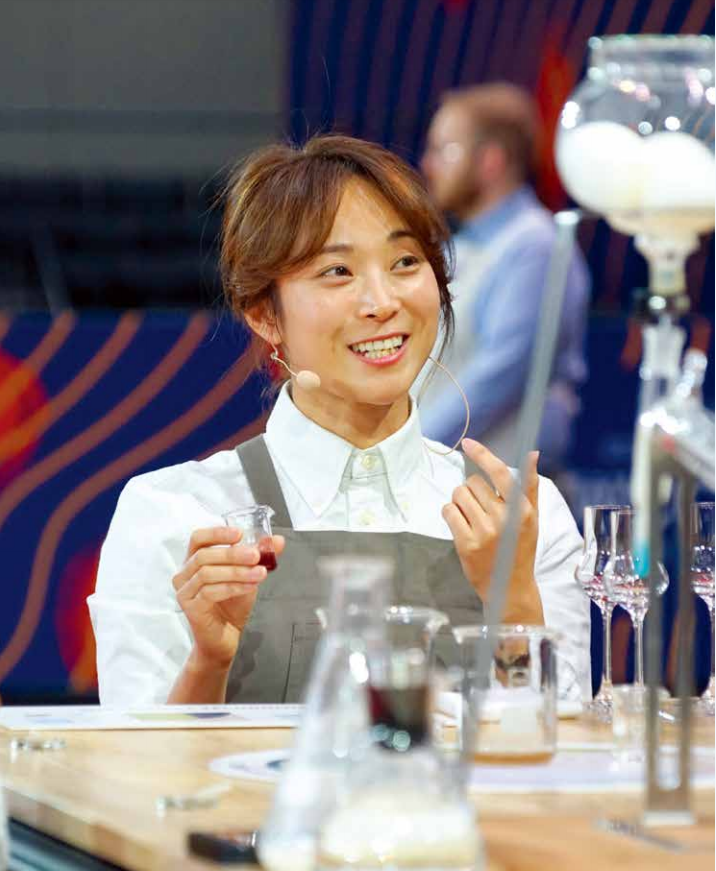
Before entering the final of the 2019 World Barista Champion (WBC) in Boston, the USA, Jooyeon Joen’s best performance was ranked 14th of the WBC last year in Amsterdam. She recalled, “At that time, I wanted to show everything that I had because it would be the chance of a lifetime.”
Jeon felt the weight of tension when she competed last year. She confessed, “In fact, I didn’t enjoy preparing for the WBC at all. But this year was different.” Jeon changed her mind as she put her focus on what she could do and enjoyed both the preparation and competition for the second chance to be on the world stage. This time Jeon smiled to the last and received the trophy from Agnieszka Rojewska, the 2018 WBC Champion, becoming the second female winner of the competition in history.
No Pains No Gains
Having worked in the coffee industry for 12 years, Jeon now is the Director of Barista Training Team for Momos Coffee, a specialty coffee company located in Busan, South Korea, where she started as a part-time barista at university back in 2007.
Jeon has competed for a decade as a barista with a one-year break in 2016 when she participated in the competition as a judge. “I was depressed and upset when I wasn’t awarded at the National Barista Championship (in South Korea) several times. At that time, I couldn’t see any possibilities of winning.”
Jeon always regards Momos Coffee’s Founder Hyunki Lee as her mentor in coffee. “Whenever I have difficulties, he always encourages me to think positively. He also teaches me how to work better and live better. If I didn’t meet him, I wouldn’t be a good barista.” So, she didn’t given up and continued to practice and try.
Coached by Jeongsoo Pak, vice president of Momos Coffee, and Federico Bolanos from El Salvador for both of her WBC competitions, Jeon was grateful to have their professional support and enthusiasm for coffee.
“I met Federico in 2014 and he was my trainer for the National Barista Championship. Though we didn’t win that time,” Jeon recalled, “Last year, I contacted him for the WBC without hesitation. We knew each other very well and shared the same goal.”
In Jeon’s winning routine in Boston, her topic focused on how carbohydrates affect coffee taste balance, a heady scientific topic which could be really dry if going wrong. (Un)Fortunately, it didn’t happen. Jeon’s interpretation of the technical information and presentation during the competition brought the facts-heavy topic to life, appealing to eyes of the audience with her smile as well as to stomachs of the judge with her coffee. It was the informality of sitting on the table paired with the beautifully presented routine which made the competition a memorable one for many people. As she said, “I want all of you to enjoy my coffee as friends, so say hello to each other.”
Jeon confessed that the semifinal was the most memorable moment for her. “I usually take a pill to relieve tension before every presentation. Being nervous makes me speak faster and louder with faster heartbeats too,” Jeon said. However, when she realized it could be the last presentation at the WBC, she decided to make a difference. “I didn’t take pills before the semifinal. I wanted to show the real me to the judges and crowd.”
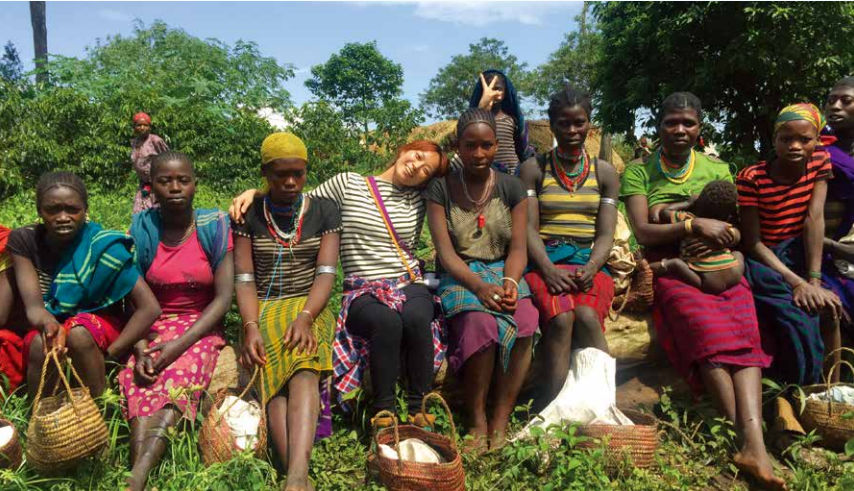
Say “Hello” to Sidra
The choice of Jeon’s competition beans was Sidra variety, which has become more and more popular in international coffee competitions.
In fact, Jeon’s team bought both Gesha and Sidra variety beans from La Palma El Tucan Estate, Colombia before they visited the farm last September. “I actually visited it to learn their great expertise about the quality of beans and research of soil.”
According to Jeon, the farm owner Sebastian Villamizar was a passionate person who shared a lot of their know-hows about soil with her team. “They prepared the cupping table for us. I felt that their Sidra (variety) had very good sweetness. I became assured that this coffee was exactly matched our WBC theme, ‘Carbohydrate.’”
Sidra variety is a cross between Bourbon and Typica, which are both Arabica beans. The La Palma El Tucan Estate first planted the new variety beans in 2012. “Cold winds from the Andes and warm winds from Tolima create dramatic temperature differences at the farm. This causes ‘stress’ to the plantation, but the resulting effect is very positive,” Jeon stated in her routine.
The developing carbohydrates in the coffee cherries as well as 65% more mucilage contributed to a sweeter taste with a more complex profile in Jeon’s cup. The natural processed anaerobic fermented Sidra beans were also used by the finalist Cole Torode, who ranked 3rd at this year’s WBC.
“This kind of fermentation breaks down the carbohydrates in the cherries and also increases the concentration of lactic acid, which contributes to the body, fruit flavors, and tartaric acid of my coffee,” Jeon explained. The increasing popularity of Sidra variety in competitions is obvious; however, it remains unknown whether we will see more baristas competing with Sidra.
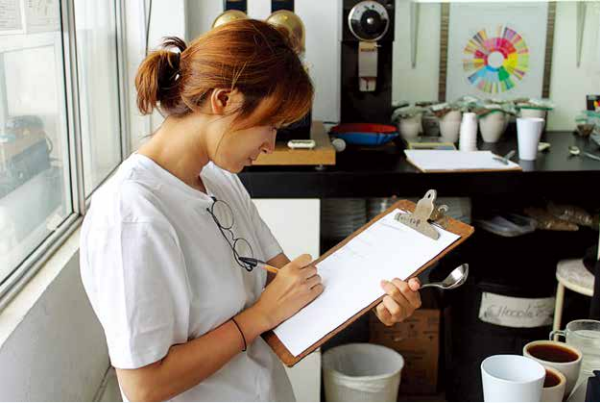
Female Baristas in the Spotlight
As the second female champion of the WBC, Jeon never sees gender as a challenge as she has competed in the past. “To be honest, I don’t feel difficult because I am a female. In fact, this is the challenge with myself, not the gender.”
Back in South Korea, Jeon is happy to see an increasing number of Koreans getting more interested in single origin coffee and filter brewing — the specialty coffee scene is growing there. Many of them now have much knowledge about the flavors of specialty coffee, and enjoy the coffee, according to Jeon. “The number of local baristas in Korea is increasing continuously. This trend also makes the retail specialty coffee market bigger every year,” said Jeon proudly. “I want to introduce the world of specialty coffee to people, not only professionals but also to people who don’t know about this field. I want to broaden the public’s concept of specialty coffee.”
Also as a barista who loves travelling, Jeon plans to visit more origin farms and participate in researches and development to improve coffee quality as well as lives of people on the farm. To Jeon, the best thing that she has learned from coffee is people. “I have met so many people, not only the people in coffee industries (baristas, roasters, and producers), but also the people in various fields. They made my life more abundant.” Stated in her routine, “there has never been a better time in history to drink coffee.” Farmers, roaster and baristas are all connected and collaborating together to create higher quality coffee than ever before. So which is your favorite cup of coffee?
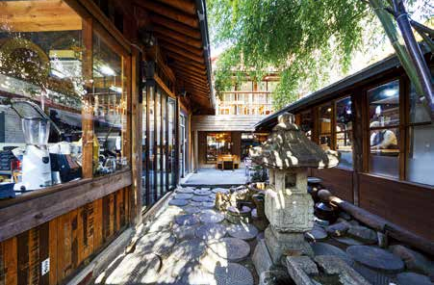
Q&A with Jooyeon Jeon
What’s your favorite part of working at Momos Coffee?
My main duty is to meet many people both professional coffee geeks and the people who are just interested in coffee, and let them know about the world of specialty coffee.
What did you want to do when you were a kid?
Actually I wanted to be a kindergarten teacher at an early age. Because I like children and like to share my experience with the people.
When did you start to compete professionally?
I have been working in coffee for 12 years and firstly knew about WBC in 2009. Since that time, I have taken the challenge to compete.
Have you tried any coffee roasted by Chinese baristas? How do you like it?
Yes, I visited Café Show in Beijing last year and tasted Chinese roasted coffee. I was very satisfied with the flavors and good quality. I was also very surprised at the fast growing of specialty coffee market in a short time.
What do you like to do for leisure?
I love travelling. I like to different spaces out there. I cannot wait to go somewhere.
What’s your favorite cup?
I basically like coffee with a clean cup. So I prefer washed coffee to the natural one. Regarding espresso, I like the one with good sweetness and body. I recently fell in love with several coffee from Ecuador.



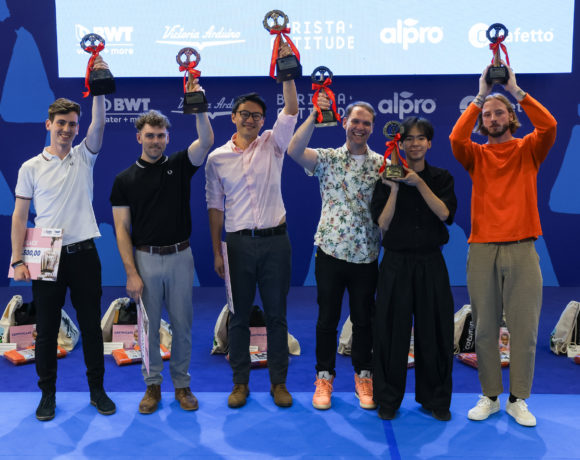






NO COMMENT